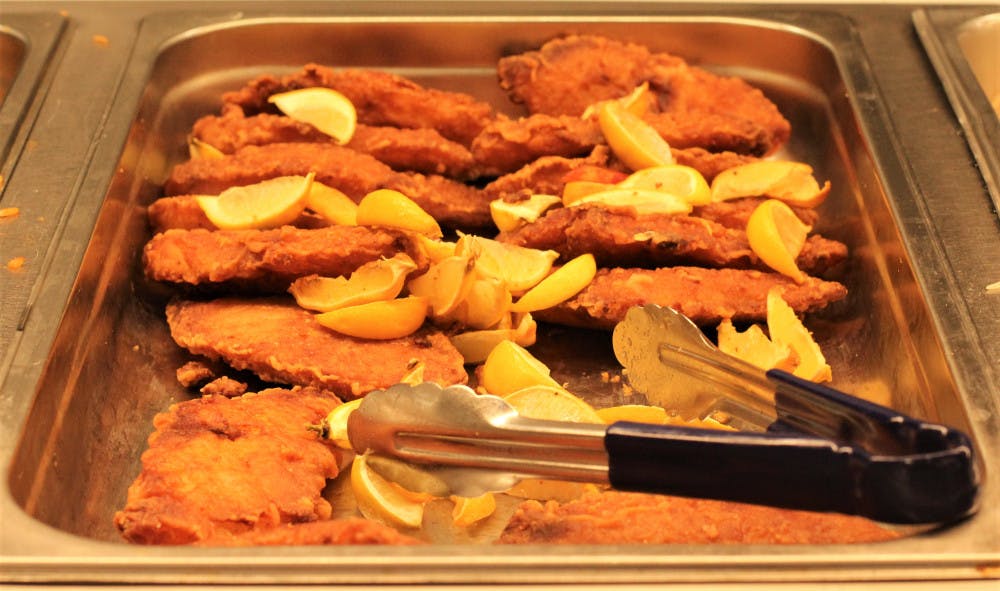Seton Hall students weighed in on the Gourmet Dining Services’ (GDS) annual tradition of not serving meat on Fridays in observance of Lent.
“It’s a normal tradition for a Catholic school,” Annaberet McKibbin, a senior diplomacy major, said. She explained how even though she doesn’t adhere to the meatless Friday tradition, that it is not an inconvenience either way.

“I think it’s fine for a religious school to follow religious customs, especially when they aren’t really harming anyone,” McKibbin said. “Traditions are extremely central to the Catholic religion, so it is understandable that a Catholic university is obligated to practice a tradition.”
Some students like Sydney Donaldson, a freshman undecided major, said they disagree with the tradition.
“I don’t think this rule is fair to students who are not practicing or participating in Lent,” Donaldson said. “In a way, we are essentially practicing it, I can’t speak for every student but I know that it feels as if I am.”
Donaldson added that even though the importance of the holiday should be explained, it is important to remember that not every student is Catholic.
“By them not serving meat for any students it feels as if theoretically we are all practicing Lent, even those who do not practice a religion in which they inhabit something like Lent,” Donaldson said.
Sebastian Kopec, a freshman diplomacy major, said he thinks the practice is not fair.
“I understand that Seton Hall is a private Catholic University, but there should still be recognition that a large body of students don’t celebrate Lent or celebrate it in a different way,” Kopec said.
He also described how having meatless Fridays infringes on his own independence. “As someone who left the Church for reasons like being forced to practice Lent by my family, this strips me of my own religious and spiritual autonomy,” Kopec said.
However, McKibbin disagreed that not serving meat forces a religion on any member of the campus population.
“It also can’t really be argued that religious practices are being forced on anyone by having meat be simply unavailable for five Fridays,” she said.

McKibbin added that there is an additional angle to the tradition that people should consider.
“Outside of the religious aspects of it, removing meat from the cafeteria for five days a year could be viewed as an eco-conscious action, as meat industries are a major source of pollution globally,” McKibbin said.
Donaldson said that though she disapproves of meatless Fridays, the tradition assists students who follow the holiday.
“I think that it’s important for GDS to help kids practice Lent as we are a Catholic University, but maybe there is another way than taking away all the meat,” she said.
Donaldson added that a potential solution could be to add more vegetarian options.
“I think much like any other time, if there are students that are opting out of eating meat or having a vegetarian diet, should simply just choose to not eat the meat provided by the school, rather than the school taking it away as a whole,” she said.
Kopec agreed. “If a student is determined to abstain from meat then they should consciously make that decision. What’s the point of abstaining if you’re not at all tempted by meat in the first place?”
He also said he suggests another alternative route GDS could take saying, “I think that they should allow meat to be served in non-cafeteria locations on campus at least, if not allow meat to be served everywhere on campus.”
Adam Varoqua can be reached at adam.varoqua@student.shu.edu.





